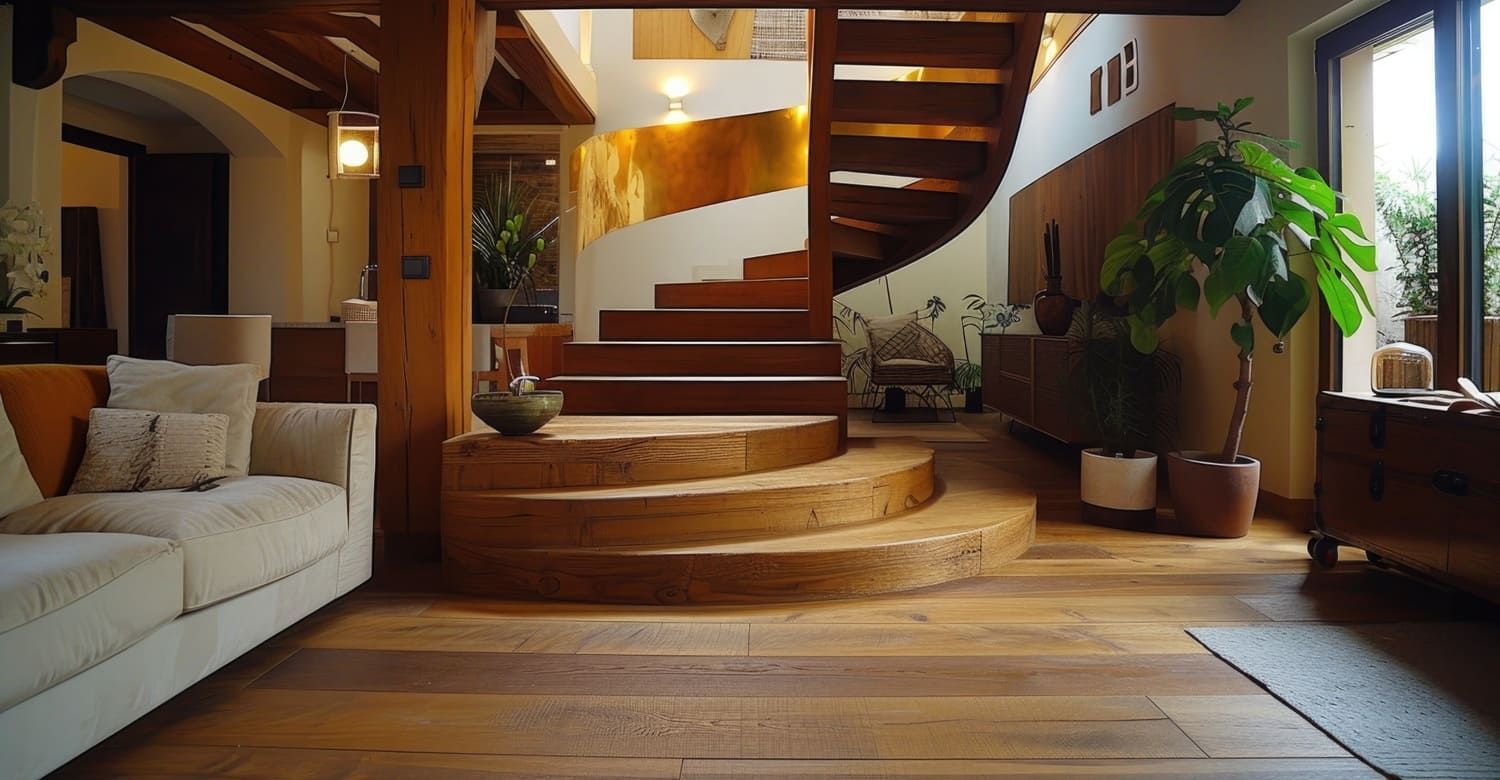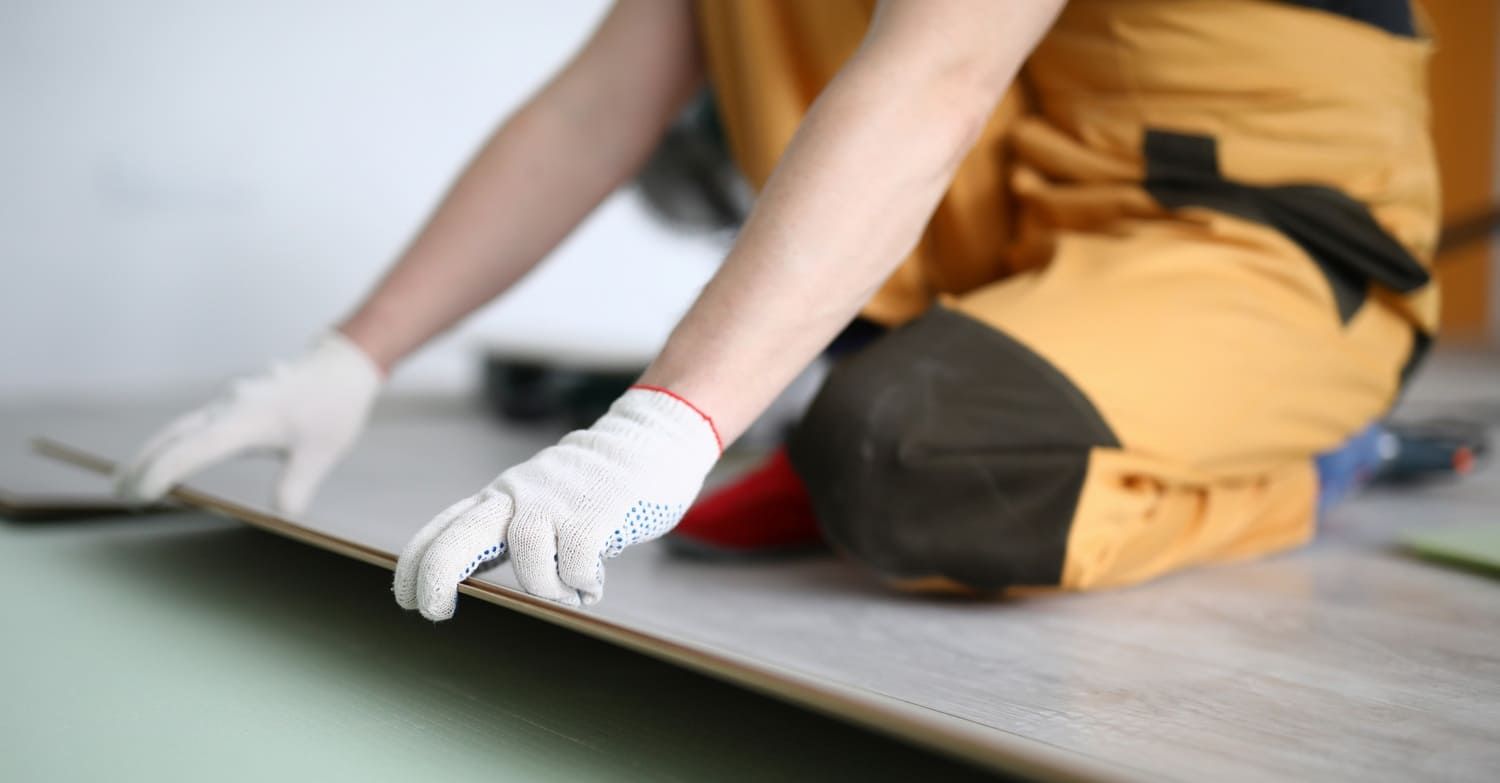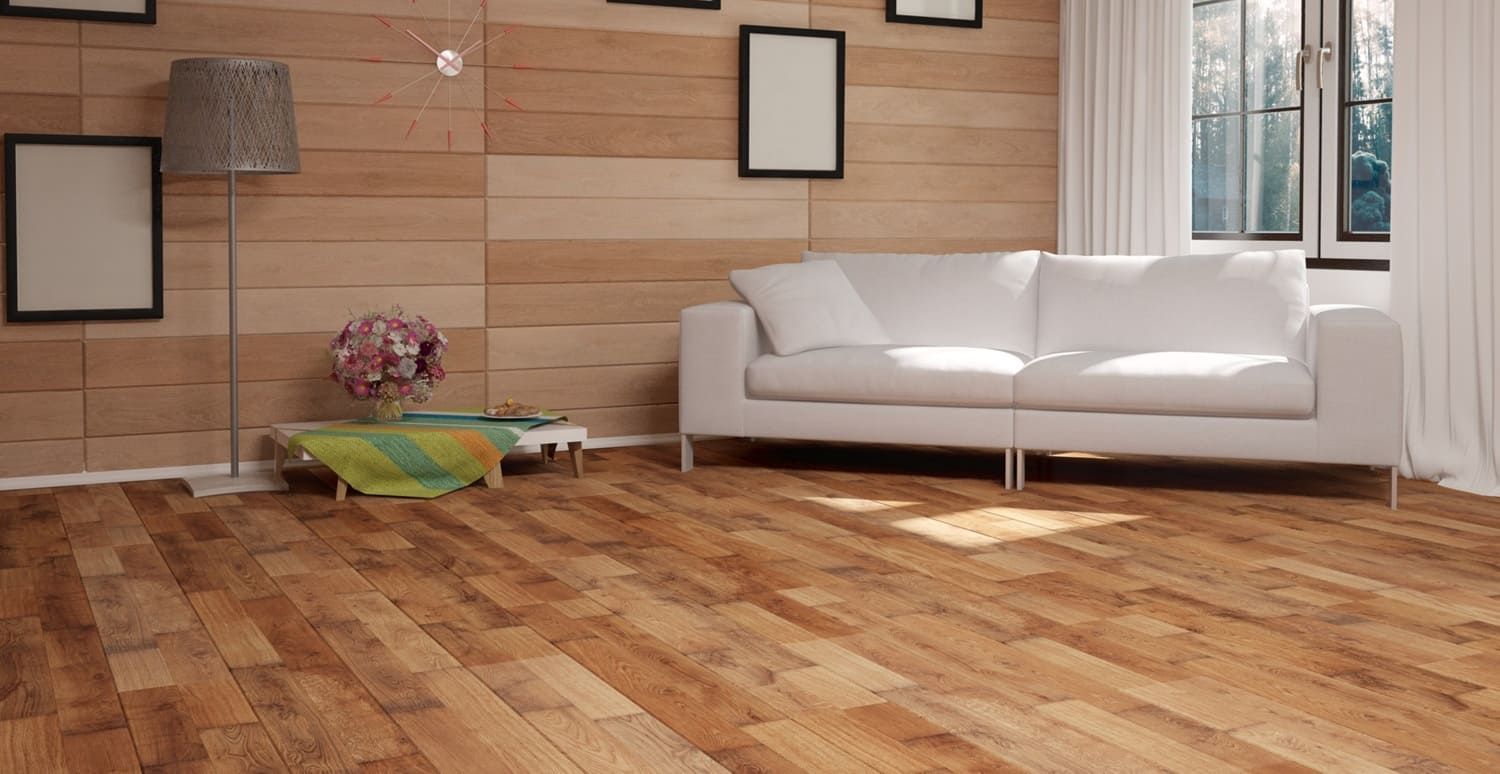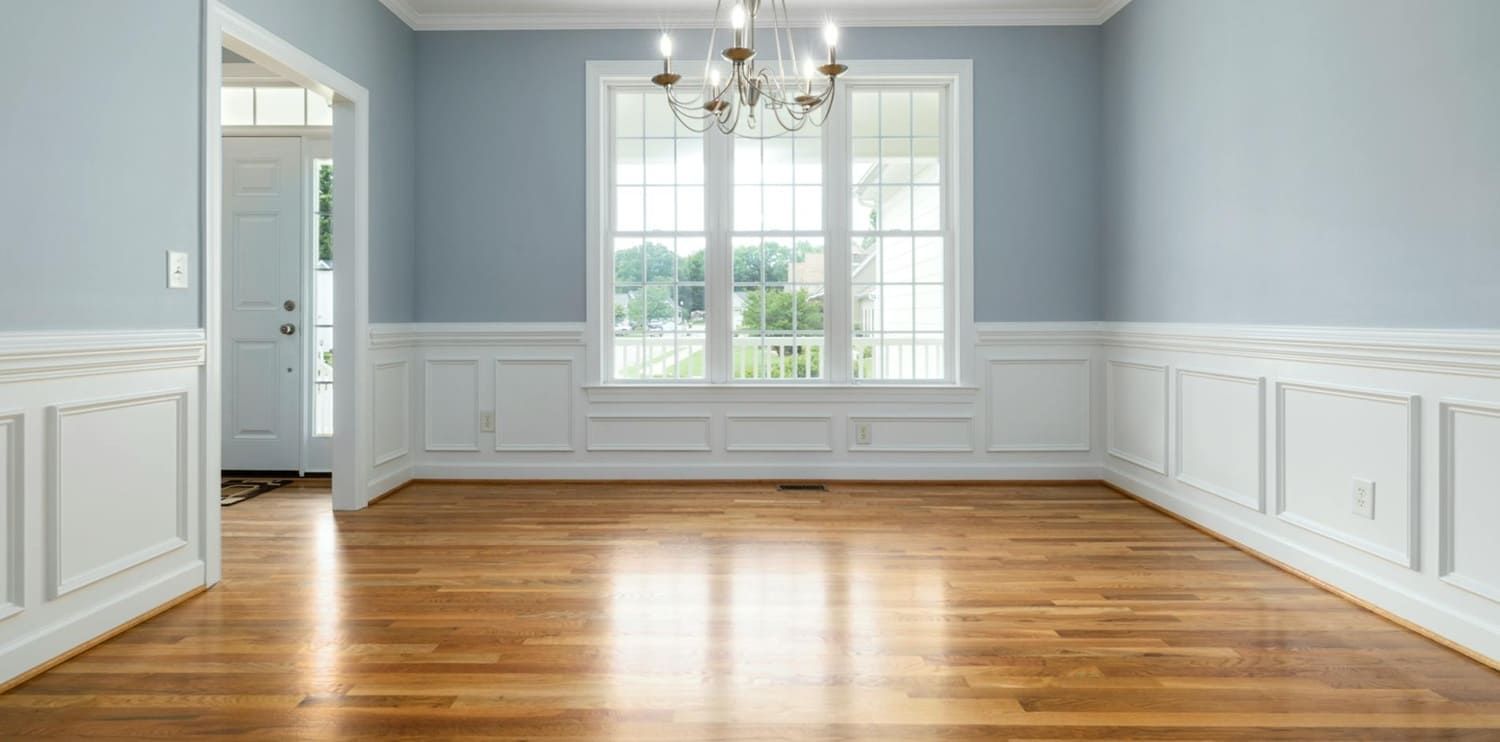Transform Your Basement with the Right Flooring Materials
Before diving into specific flooring materials, it's important to understand the unique challenges basements present. Typically located below ground level, basements are more prone to moisture and dampness than other areas of your home. This is due to groundwater, humidity, and potential leaks, making waterproof basement flooring a priority. Additionally, the enclosed nature of basements can lead to poor ventilation, exacerbating issues with dampness and air quality. Addressing these challenges is crucial to maintaining a healthy and comfortable environment in your basement.
Moreover, basements often serve multiple purposes, from storage to living spaces, which means that flooring must be versatile enough to handle diverse activities. The type of use will influence the kind of flooring that is most appropriate, whether you need something that can support heavy loads, withstand foot traffic, or provide comfort underfoot. Understanding these challenges will help you make informed decisions when selecting the ideal flooring for your basement.

Moisture Concerns
Moisture is the biggest concern when selecting basement flooring. Water can seep through the foundation or come from leaks, leading to mold, mildew, and damage to non-waterproof materials. Therefore, choosing a flooring option that can withstand damp conditions is crucial. It's essential to consider not only surface water but also moisture that can rise from below through concrete slabs. This vapor can be just as damaging as standing water if not managed properly.
To mitigate moisture problems, it's advisable to implement a moisture barrier or a vapor retarder beneath the flooring material. This extra layer of protection can be critical in preventing moisture-related damage, prolonging the lifespan of your chosen flooring. Additionally, regular inspections of your basement's waterproofing systems, such as sump pumps and drainage, can help maintain optimal conditions for your flooring.
Temperature Fluctuations
Basements often experience more temperature fluctuations than the rest of the house. Since they are partially or fully below ground, they can be cooler and more humid. Flooring materials need to accommodate these changes without warping or cracking. Choosing materials that are stable under varying temperatures can prevent costly repairs and replacements in the long run.
In addition to selecting the right flooring material, consider incorporating insulation in your basement flooring strategy. Insulation can help moderate temperature fluctuations, making the space more comfortable year-round. Underfloor heating systems are another option that can enhance comfort, particularly if you choose a flooring material that tends to be cool to the touch, such as tile.
Top Waterproof Basement Flooring Options
Selecting waterproof basement flooring can protect your investment and ensure long-lasting beauty and functionality. Let's explore some top choices.
Vinyl Flooring
Vinyl flooring is a versatile and popular choice for basements due to its waterproof nature. Available in sheets, tiles, or planks, vinyl can mimic the look of hardwood or stone without the susceptibility to moisture damage. It's also easy to install and maintain, making it an ideal option for DIY enthusiasts. Its flexibility and resilience make it suitable for areas that might experience minor shifts or settling.
Beyond its practical benefits, vinyl flooring comes in a wide range of patterns and colors, allowing you to customize the look of your basement. Whether you're aiming for a sleek modern design or a cozy traditional feel, vinyl can cater to your aesthetic preferences. Its cost-effectiveness is an additional advantage, providing the look of high-end materials without breaking the bank.
Tile Flooring
Ceramic or porcelain tiles are excellent choices for basement flooring. They are inherently waterproof and can handle moisture without issue. Tiles come in various designs and colors, allowing you to create a customized look. However, they can be cold and hard underfoot, so consider adding area rugs for warmth and comfort. The durability of tiles makes them well-suited for high-traffic areas, ensuring they retain their beauty even with frequent use.
In addition to their aesthetic versatility, tiles are also resistant to stains and scratches, which is beneficial in a busy household. For added comfort, you can pair tile flooring with radiant heating systems to keep the space warm during colder months. When installed properly, tile flooring can last for decades, offering a timeless appeal to your basement.
Engineered Wood
Engineered wood flooring offers the appearance of hardwood with better moisture resistance. It comprises a real wood veneer over a plywood or high-density fiberboard core, which makes it more stable in moist environments. While not entirely waterproof, it's a more resilient choice than traditional hardwood for basements. Its construction helps it withstand the humidity and temperature fluctuations often found in below-ground spaces.
Additionally, engineered wood is available in a variety of finishes and styles, allowing you to achieve the elegant look of hardwood while enjoying enhanced durability. It's an excellent choice for homeowners who desire a warm, natural wood appearance without the maintenance challenges associated with solid wood in a basement setting. To further protect engineered wood, you may consider applying a sealant that can add an extra layer of moisture resistance.
Luxury Vinyl Plank (LVP)
Luxury Vinyl Plank (LVP) is another excellent option for basements. It's designed to replicate the look of real wood or stone while being completely waterproof. LVP is durable, easy to clean, and can withstand high traffic, making it ideal for a basement setting. Its click-and-lock installation system makes it user-friendly for DIY projects, saving on professional installation costs.
The advancements in LVP technology have made it a top contender for basement renovations, offering not only practical benefits but also exceptional aesthetic appeal. Its resilience against scratches and dents makes it suitable for families with children or pets. Moreover, LVP’s cushioned backing provides a more comfortable feel underfoot compared to traditional tile or stone, enhancing the overall comfort of your basement space.
Additional Basement Flooring Materials to Consider
While waterproof options are ideal, there are other materials that might suit your needs depending on your specific basement conditions and preferences.
Laminate Flooring
Laminate flooring can be used in basements with proper underlayment and moisture barriers. It's more affordable than hardwood and offers a similar aesthetic. However, it's not entirely waterproof, so it's best suited for basements with minimal moisture issues. Installing a high-quality moisture barrier is crucial to protect laminate from potential water damage.
Laminate's durability against scratches and its easy maintenance make it a popular choice for homes with active lifestyles. Additionally, the availability of a wide array of designs and textures allows homeowners to mimic the appearance of natural wood or stone at a fraction of the cost. For those seeking both style and affordability, laminate can be a viable option, provided moisture concerns are adequately addressed.
Carpet Tiles
Carpet tiles are a cozy option that can add warmth and comfort to a basement. They are easier to install and replace than wall-to-wall carpeting. While not waterproof, some carpet tiles are designed to be moisture-resistant and can be a good choice for low-moisture basements. Their modular nature allows for easy removal and replacement of damaged tiles, maintaining the overall appearance with minimal effort.
Carpet tiles also offer excellent sound insulation, making them ideal for creating a quieter environment in your basement. Available in various colors and patterns, they can add a touch of personality and warmth to the space. For basements used as family rooms or play areas, carpet tiles can provide a soft, safe surface for children to play on.
Rubber Flooring
Rubber flooring is a durable, water-resistant option often used in gyms and playrooms. It provides a soft surface, reduces noise, and is easy to clean. Rubber tiles or rolls can be a practical choice for basements used as recreational spaces. Their shock-absorbing properties make them ideal for areas where physical activities take place.
Besides its practical advantages, rubber flooring is available in a range of colors and patterns, allowing you to create an energetic or calming atmosphere based on your preferences. Its resilience and ease of maintenance make it a long-lasting solution for active households. Whether you are setting up a home gym or a kid's play area, rubber flooring can meet the demands of a dynamic environment.

Choosing the Right Flooring for Your Basement
Selecting the right flooring for your basement involves balancing aesthetics, functionality, and budget. Here are some factors to consider:
Assess Your Basement's Condition
Start by assessing your basement's moisture level, temperature stability, and intended use. This will help narrow down the most suitable flooring options. Consider conducting a moisture test to determine the level of humidity and potential water ingress. Understanding these parameters will allow you to select a flooring solution that addresses specific environmental challenges.
Furthermore, consider the primary function of your basement. Whether it serves as a living area, gym, or storage space will influence the type of flooring that best suits your needs. Having a clear understanding of the space's function will guide your choice, ensuring the flooring enhances the usability and comfort of the basement.
Set a Budget
Flooring costs can vary significantly. Set a budget that includes the cost of materials, installation, and any additional treatments like moisture barriers or underlayment. Consider also the long-term costs associated with maintenance and potential repairs. Investing in quality materials upfront can save money over time by reducing the likelihood of damage and the need for replacement.
It's also important to factor in the cost of professional installation if you choose not to go the DIY route. While hiring professionals might increase the initial expense, it can ensure a flawless finish and proper adherence to installation guidelines, particularly in moisture-prone areas.
Prioritize Durability and Maintenance
Choose a flooring material that can withstand your basement's conditions and requires minimal maintenance. This will ensure your new floor remains beautiful and functional for years to come. Materials that resist stains, scratches, and moisture will offer the best return on investment, especially in a high-traffic environment like a basement.
Consider the ease of cleaning and any special requirements for maintaining the flooring's appearance. Low-maintenance options can save time and effort, allowing you to enjoy your basement without the burden of constant upkeep. Durability and ease of care are essential factors that contribute to the long-term satisfaction with your flooring choice.
Consider Aesthetic Preferences
Finally, consider your personal style and how the flooring will complement the rest of your home's decor. Many basement flooring materials offer a wide range of styles and colors to choose from. Opt for a flooring design that not only enhances the basement but also harmonizes with the overall theme of your home.
While aesthetics are important, remember to balance style with functionality. Choose a design that not only looks good but also aligns with the practical needs of your basement space. A thoughtful selection will create a cohesive look that integrates your basement seamlessly with the rest of your home.
Final Thoughts
Transforming your basement with the right flooring materials can turn an underutilized space into a valuable part of your home. By understanding the unique challenges of basements and selecting appropriate waterproof options, you can achieve a durable, stylish, and functional basement floor that enhances your home's overall appeal. A well-chosen floor can increase the comfort and usability of your basement, making it a cherished part of your living environment.
At Eagle Flooring West, expert flooring contractors specializing in flooring installation, we proudly serve Phoenix, Scottsdale, Glendale, Peoria, Paradise Valley, Chandler, Mesa, Tempe, Gilbert, Surprise, Avondale, Buckeye, Goodyear, Tolleson, Cave Creek, Anthem, Fountain Hills, and the surrounding Phoenix Arizona areas. Contact us today for a free estimate and let us help you transform your basement into a beautiful, lasting space.
FAQs: Choosing the Best Basement Flooring for Comfort and Durability
What are the best flooring materials for a basement?
The best options include luxury vinyl plank (LVP), tile, engineered wood, and sealed concrete. These materials are durable, moisture-resistant, and ideal for the unique conditions often found in basements.
Is it safe to use hardwood flooring in a basement?
Solid hardwood is not recommended for basements due to moisture concerns. However, engineered hardwood is a better choice as it handles humidity and temperature fluctuations much better.
What flooring resists moisture and flooding in basements?
Luxury vinyl, ceramic tile, and sealed concrete are among the top choices for water-resistant basement flooring. They are less likely to warp or develop mold in damp conditions.
Can carpet be used in a finished basement?
Carpet can be used if the basement is dry and properly insulated. Choose low-pile, moisture-resistant carpet and pair it with waterproof padding to reduce the risk of mildew and mold.
How do I prevent basement flooring from developing mold or mildew?
Select moisture-resistant materials, use a vapor barrier under the flooring, ensure proper basement ventilation, and fix any leaks or drainage issues before installation.
Is underlayment necessary for basement flooring?
Yes, underlayment helps with insulation, moisture protection, and soundproofing. It’s especially important when installing laminate, vinyl, or engineered wood in basements.






